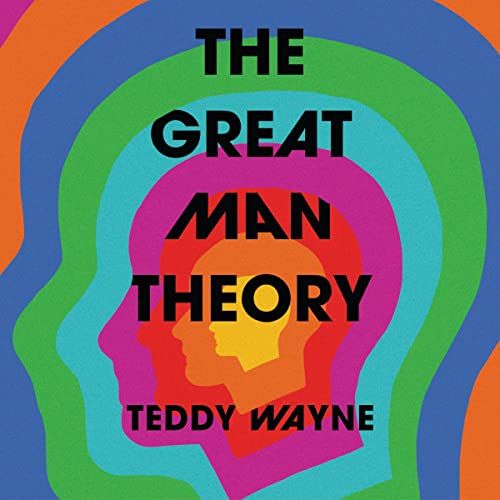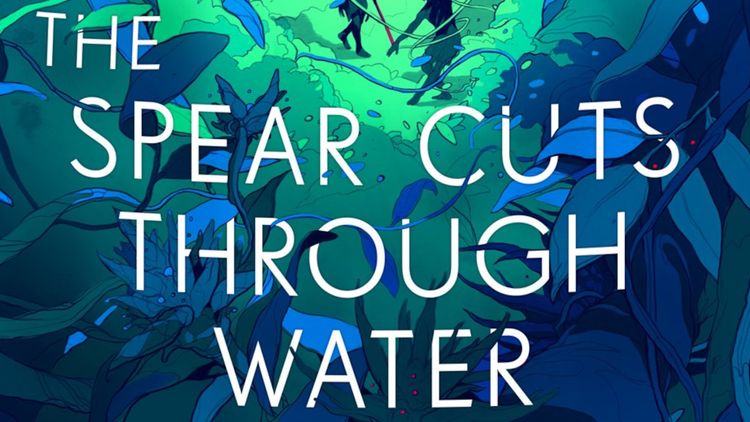The Great Man Theory by Teddy Wayne

I'm not particularly fond of art relating to Donald Trump. It's not something I find intrinsically interesting, largely because the man is beyond parody himself. I don't want a think piece or a painting or a movie to discuss him more, largely, because I think there's much more interesting things to talk about. That's precisely the problem Paul, the protagonist of Teddy Wayne's "The Great Man Theory" faces. Everyone around Paul, the divorced adjunct professor, doesn't want to hear about Trump. Or they do want to talk about him but too much, drowning out Paul's siloed stream of thought. Or all they want to do is talk and never take action, choosing easy protests over hard strategy. No matter what they do, Paul thinks they're wrong. They're either too naive, too cynical, too idealistic, too complacent, too quiet, too loud. The only person who is right about Trump is Paul.
"The Great Man Theory" was published in 2021, and presumably written some time during Trump's term. What makes topical work frustrating to me is its typical aspirations towards timelessness. It's a difficult challenge for art to handle topics that evolve so rapidly, only to be released into the world far after the conversation has moved on. Or more irksome, for a work to wink at us, as if the author is smugly saying, look how good/bad we had it then as compared to now. One of this novel's strengths is that it doesn't attempt to stand the test of time. It doesn't try to reflect on the now at all. Instead, it works as a time capsule, trying to capture the specific anxieties of the Gen-X American liberal in the years of 2016-2020. There's no projecting forward, imagining what the future USA would look like. The book, like Paul, is caught entirely in the present moment. Wayne isn't smirking at us through the pages, asking us to laugh at Paul's misconceptions. In fact, despite being written in third-person, the author feels invisible because of the forcefulness of Paul's internal monologue. Wayne has crafted a character so obsessed with his own voice that he can overpower the narrator of his story.
Paul is a terrific and exceptionally unlikable character. He is so caught in his own neuroses, so sucked into his self-imposed narrative, that he cannot see what's happening in front of him. Wayne toys with this ignorance, pushing and pulling us between sympathy and distaste for Paul as he commits faux pas after faux pas. There were moments when I turned the pages faster simply to escape Paul's ignominy, especially during one particular sleepover scene. There are distinct moments when Paul is so miserable to endure that I wondered if I wanted to keep reading. But Wayne seeds a layer of suspense beneath, with a clear tragic structure building towards implosion. I didn't want to spend any more time with Paul but I had to know what he would do next.
This book resists the commonly held belief that our art must reflect our politics. And if a work doesn't reflect our individual politics in its totality, then the work fails to meet our expectations. The flaw in this approach is multifold; firstly, we are complex individuals whose politics are scarcely replicable in even our closest friends; secondly, the art is often as complicated as we are and cannot be distilled into singular talking points; and finally, art is subjective and open to interpretation. My understanding of a work's politics may differ drastically from yours. And that's an ever-present part of this novel, which never really puts its cards on the table (if that were even possible). The novel doesn't waffle on basic tenets of empathy and justice. Instead, it points to more nebulous questions, like how do we conduct ourselves in a world falling apart? What is the most effective strategy for creating change? Must we stomach the courtesy of a bigot? Paul has his own shifting answers to these questions. And sometimes, the reader will agree, and sometimes they will not. Because despite his many flaws, Paul is sometimes right. Yes, he's obnoxious, abrasive, narcissistic. But occasionally, he's right. But he's not right in a convenient, polemical sense, where Wayne gets to use Paul as a proxy for his perspective. He's right in a complicated, messy way that defies a soundbite. He's right in ways that we can disagree on.
There are many times throughout the novel when Paul has every opportunity to back off from the ledge, or conversely, cross the threshold and become something other than what he is. But he's trapped, unable to make any of those movements because that would deny the solidity of his self. The Great Man Theory posits that history is shaped by singular great men, heroes who possess ironclad wills and the capacity to shape the world. Paul believes he is living under the thumb of a Great Man, the one sitting in the White House from 2016 to 2020. But, as is Paul's wont, he is ignorant to the more obvious truth in front of him. The one person who can change his life, for better or for worse, is him.



